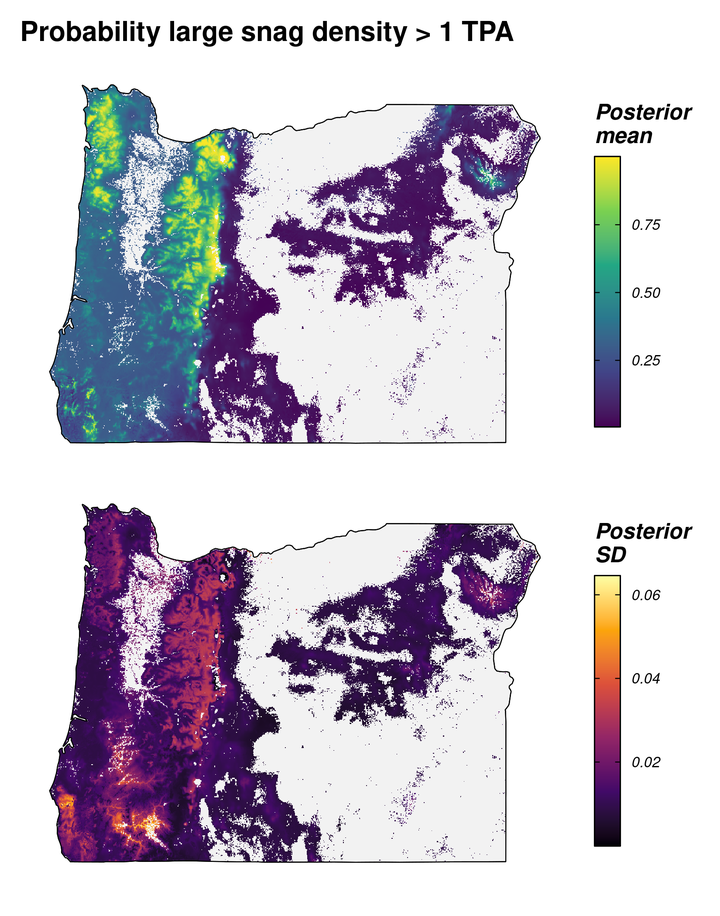
Abstract
Changing forest disturbance regimes, invasive species, and unprecedented climatic stress are, in part, driving broad-scale shifts in the composition and structure of North American forests. Accordingly, forestry professionals are increasingly tasked with protecting and improving forest health across vast, complex landscapes. However important, such efforts are often immensely challenging to implement. Prior to engaging in active management, systems must be developed to accurately monitor forests across broad spatial domains, detect underlying changes in forest condition, and attribute such change to a host of potential, interacting forest stressors. As such, the development of user-friendly technologies that help streamline forest health evaluation and monitoring may be of extraordinary value to forestry professionals tasked with maintaining the health, diversity, and productivity of North American forests. To this end, we developed rFIA, an open-source R package aimed at increasing the accessibility and use of the USFS Forest Inventory and Analysis (FIA) Database. We demonstrate the utility of rFIA for broad-scale forest health evaluation and monitoring via a series of case studies. First, we highlight rFIA’s spatio-temporal estimation capacity by estimating current down woody material biomass within HUC 6 watershed boundaries across the conterminous U.S. (CONUS). Second, we illustrate how rFIA enhances the value of FIA for temporal change detection by examining trends in lodgepole pine (Pinus contorta) mortality in Colorado using multiple design-based estimators. Third, we use rFIA to estimate annual change in live tree carbon at all remeasured FIA plots across the CONUS, and develop a Bayesian hierarchical estimate the degree to which forest disturbances have driven such change. We envision rFIA as a key component in the future of forest health evaluation and monitoring in the US, targeting expansion in small area estimation and the development of long-term monitoring and reporting tools.